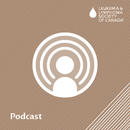Resource Library
Showing 11 to 20 of 211 results
Paul Davis speaks to us about his experience with Diffuse large B-cell lymphoma (DLBCL) and an underlying Follicular Lymphoma.
Dr. Aly Karsan talks about Acute myeloid leukemia (AML) diagnosis, treatments, causes and research.
Dr. Philip Kuruvilla talks to us about current chronic lymphocytic leukemia (CLL) treatment options, potential side effects and how to manage them.
Dr. David Szwajcer explains the basics of Chimeric Antigen Receptor T-Cell therapy, or CAR T-Cell therapy. Dr. Szwajcer is a staff physician working at CancerCare Manitoba and the Health Sciences Centre in Winnipeg.
Meghan MacMillan is a Clinical Nurse Specialist in the Adolescent and Young Adult Program at Princess Margaret Cancer Centre. She helps support the care and specific needs of patients diagnosed with cancer between the ages of 18-39 years old.
Rachelle Ramsay is a RN with her Certification in Oncology, currently working at the Tom Baker Cancer Centre. Kent Parlee recently celebrated 36 years of marriage to his wife and best friend Cheryl. Kent and Cheryl enjoy spending time with family, travelling and volunteering at home and abroad. Kent is a CLL survivor.
Dr. Kareem Jamani talks to us about CML treatment options and diagnosis.
Dr. Gilles Robichaud speaks about CLL research. He shares information about his current research and how it could help inform CLL treatment in the future.
Joanne was diagnosed with Polycythemia vera in 2012. She shares her experience with her diagnosis, the support she received from local groups and how it has changed her life.
Just a few days before Christmas in 2010, Patrick Alexander, an LLSC First Connection volunteer from Vancouver, was diagnosed with Multiple Myeloma. He talks to us about his experience with his diagnosis, treatment and how it changed his view on life.
